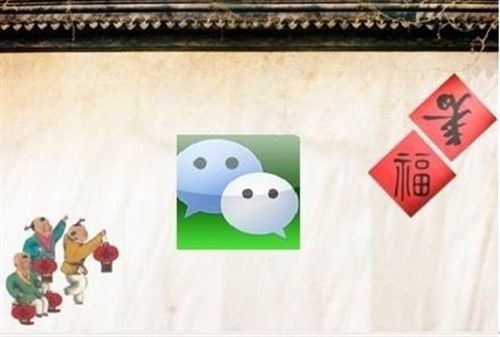每年的春节都能创造两项世界纪录:全世界观看人数最多的电视晚会和全世界最忙碌的电信网络。自从手机普及以来,中国人已经习惯了在春节期间通过手机短信向亲友们传送祝福。北京移动、联通、电信三家电信运营商大年初一发布的统计数据显示,除夕当天,北京人共发送拜年短信近11.6亿条,比去年除夕的11亿条略有增长。不过值得注意到是,虽然总量在增加,人均发送短信量却下降了。今年春节,通过手机移动网络发微博评春晚和拜年的人数明显增加。据新浪微博方面的统计数据显示,除夕零点过后第一秒内,新浪微博用户共发出近2.9万条微博。与此同时,用微信进行语音拜年也成为很多人的首选。微信因其便利性和低资费的优势成为拜年市场的新宠。虽然各类技术让拜年更方便,不过新春佳节还是尽量把手机放一边,多跟亲友们见面相聚吧。

 |
|
Rather than visiting families and friends and passing on good wishes in person on the first day of the lunar New Year, the Chinese have grown used to sending greetings from their mobile phones. |
The Chinese lunar New Year usually witnesses two records: the world's most watched television gala show, and its busiest telecommunications network.
Rather than visiting families and friends and passing on good wishes in person on the first day of the lunar New Year, the Chinese have grown used to sending greetings from their mobile phones.
The Beijing branch of China Mobile, the country's biggest telecom operator, said that in the capital city alone, a total of 831 million text messages were sent on the eve before this year's Spring Festival, up 4.27 percent from a year ago. China Unicom Beijing also recorded a peak volume of 8,000 text messages per second around 7:45 p.m. that night, according to Sunday's edition of the Beijing Evening News.
However, while media once dubbed telecom operators the biggest money-maker on New Year's eve, industry insiders say the heyday for the short message service (SMS) may have passed.
A January report from the Ministry of Industry and Information Technology (MIIT) said the Chinese sent 897 billion SMS messages in 2012, up only 2.1 percent year on year, whereas the number of mobile users gained about 11 percent to 1.1 billion.
At the same time, the country now has 564 million netizens, about 75 percent of whom can access the Internet from their cell phones, according to the MIIT report.
For many netizens and mobile users, staying online tweeting about the Spring Festival Gala Show run by China's state television is a "ritual" as important as watching the program itself.
"I brought my computer to the living room," netizen "robin_ taoran" said on Sina Weibo, a Chinese Twitter-like service, on lunar New Year's eve. "Watching the show on TV while tweeting on Weibo is a must, just like Chinese steamed bread goes with pickles."
According to Dong Wenjun, Sina Weibo's director of operations, Weibo users sent a total of 28,977 posts in the first second of February 10, the day of the Chinese New Year.
"Saying happy new year on Weibo has become a good custom," Dong was quoted as saying by China National Radio.
For the country's 233 million 3G users, Weixin, a popular smartphone application that allows voice messages and more creatively edited greetings, also became a trend this year for its convenience and low cost.
A survey run by Sootoo.com, a website monitoring the Chinese Internet industry, showed that about one fourth of 7,854 respondents said before the Spring Festival that they would use Weixin to send greetings this year.
However, paying a visit in person and SMS still ranked as the most popular options for New Year greetings, with both choices selected by 73 percent of respondents.
Although people have more ways to express their feelings thanks to development of technology, face-to-face communication is irreplaceable, said Zhong Xin, a professor of communications at Renmin University.
While some Chinese netizens are drafting "strategy guides" to cope with questions from difficult relatives, others are starting an online campaign pledging to leave cell phones behind during family reunion dinners.
"It is perhaps necessary for young people to cherish family ties, for they will have fewer and fewer relatives as time passes. Loneliness is harder to deal with than the bustle," Zhong said.
More young Chinese are nowadays working and settling down in cities far from home. Beijing had 7.7 million migrant residents as of the end of 2012, and many of them are the only children in their families.
相关阅读
(Xinhua)

(中国日报网英语点津 Helen )
